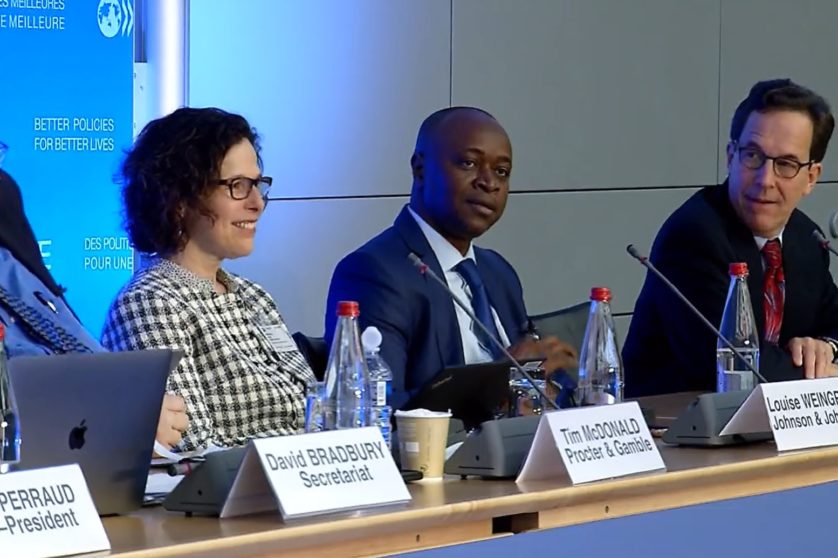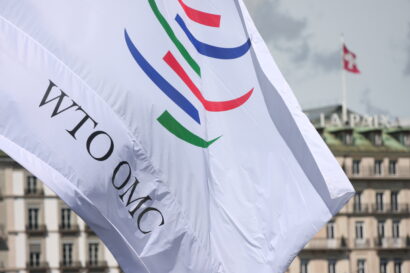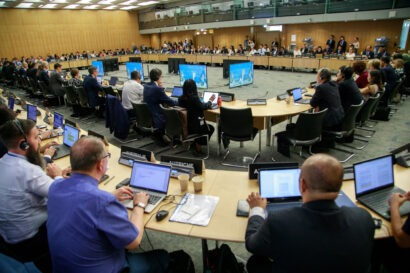Developing countries are making a significant contribution to the current efforts to reform international tax in the project on base erosion and profit shifting (BEPS), despite the obstacles they face in making their participation effective. It is welcome that since 2016 participation in the process was open to all countries, through the Inclusive Framework on BEPS. However, they face difficulties of resources and capacity (as Irma Mosquera Valderrama described in her recent piece): finding the money and suitable staff with time to attend meetings always held in the North, in unfamiliar countries whose governments have created high entry barriers for visitors from poor countries. As ATAF has pointed out, ‘Given that the limited technical resources of developing countries, especially countries in Africa, are already stretched thin between domestic tax priorities and participation in the global standard setting, the likelihood that officials in these countries are able to regularly attend these meetings is quite slim.’
The Developing Country Viewpoint
Nevertheless, developing country perspectives were ably represented at the recent public consultation on the latest draft proposals on methods for allocation of the profits of multinational enterprises (Pillar 1). In the first session, Thulani Shongwe presented views formulated by ATAF’s Technical Committee, arguing for fundamental changes to the basic rules on taxable presence, and for simplified methods for allocation of MNE profits departing from the arm’s length principle.
This was reinforced on Day Two by Ismaïla Diallo, who presented the views of African francophone countries members of CREDAF. He spelled out that their top priority is for agreement on simple, formulaic methods, so that they would not need to waste scarce staff resources trying to apply unsuitable rules. He also stressed that a simplified methodology should have a wide scope, going beyond the focus on distributors in the current proposals.
The chair of the session, Gael Perraud of France, added that all tax administrations are interested in simplified methods, since they all face problems of resources. From the business side also, Tim McDonald of Procter and Gamble pointed out the defects of the arm’s length principle, especially for developing countries. What he described as ‘the fine art of transfer pricing’ takes years of training, and access to specialist databases, but remains subjective. As he pointed out, half of the Inclusive Framework members have no transfer pricing economists or access to databases, which makes it impossible to apply the arm’s length principle.
Tim McDonald’s presentation
Indeed, summarising the first day, Grace Perez Navarro (the OECD deputy head of tax) joked that those who had suggested a return to the arm’s length principle reminded her of the John Lennon song ‘Give arm’s length a chance’. Her comment was: ‘But we can’t go there… you can see that the three proposals the Inclusive Framework approved have all rejected the arm’s length principle. We are looking at a new type of approach that is looking at the whole entity and applying a more formulaic approach’.
Grace Perez Navarro’s presentation
A Shift in Perspective
This is an enormous shift since the start of the BEPS project, when the Action Plan of 2013 stated that the consensus among governments was that formulary apportionment was ‘not a viable way forward’. This approach now seems to be taken more seriously, especially since it has been put forward in a submission by the G24 group of developing countries. There are good reasons why these proposals offer a better way forward for all countries than anything that the OECD countries alone could formulate.
The failures in international tax rules that created the political pressures for reform actually resulted from the OECD perspective on international tax. They are due to two fundamental flaws that lie at the heart of what Allison Christians’ blog here recently referred to as ‘the conventional wisdom’ in international tax:
- the priority given to the country of residence, and
- the methods for allocating MNE income based on treating affiliates of MNE groups as independent entities, focusing on the pricing of transactions between them, referred to as the arm’s length principle in transfer pricing.
Most international tax avoidance strategies are based on exploiting either the concept of residence or the independent entity principle, or both. These encourage the creation of complex corporate groups to channel investment flows in ways that facilitate extraction of untaxed profits, through entities resident in convenient jurisdictions that researchers have described as ‘conduits’ and ‘sinks’.
It is too much to expect the tax experts of OECD countries, who for decades have developed and become steeped in the OECD perspective, to reorient their thinking without a strong counterweight from others. This needs groups of like-minded countries to work together to formulate and advocate positions and proposals from an alternative perspective. Indeed, by doing so they have already made significant contributions to the process. ATAF reported in 2018 that African delegates to Working Party 6 succeeded in inserting changes to reports on the attribution of profits to permanent establishments, and the use of the profit split method. Both of these entail divergences from the dominant OECD perspective.
Is the End in Sight?
We are clearly not at the end of this long and winding road, but perhaps we now have a clearer destination. In this context, it’s important to be clear about what is meant by seeking compromise and consensus, to which Ben Dickenson refers in his recent blog. To be sure, we need long-term sustainable solutions that are fair to all. But these are unlikely to be found by cobbling together parts of proposals that derive from incompatible perspectives. The OECD secretariat’s attempt at a unified approach was worthy, but the debate at the consultation revealed that by trying to please everyone it might satisfy nobody. It may be hard for many OECD members to swallow, but perhaps they should accept that it is the developing countries that are pointing most clearly to an approach that would be better for all.
This would entail developing a more comprehensive formulaic approach based on a profit split methodology using allocation factors reflecting the real activities of MNEs in each country. It should be applied directly to all MNEs, without the unnecessary limitations of size and scope envisaged in the Secretariat draft. It was clear from the discussions on Day One of the consultation that the suggested limitation to ‘consumer facing’ business would be unworkable. A greater allocation of tax to source jurisdictions is merited not just because they provide markets, but because digitalisation has accelerated the shift to the services economy in in the post-industrial age. Developing countries have long argued that profits from services should be taxable in the country where they are delivered. This does not mean allocation of profits entirely according to sales, but by a balanced formula, reflecting both supply and demand factors, as explained in the G24 proposal.
International tax rules originated nearly a century ago, and were formulated by the dominant capital-exporting countries, reflecting their perspective. We now have an unprecedented opportunity to rewrite them for a new era, but this time taking a more balanced approach.



